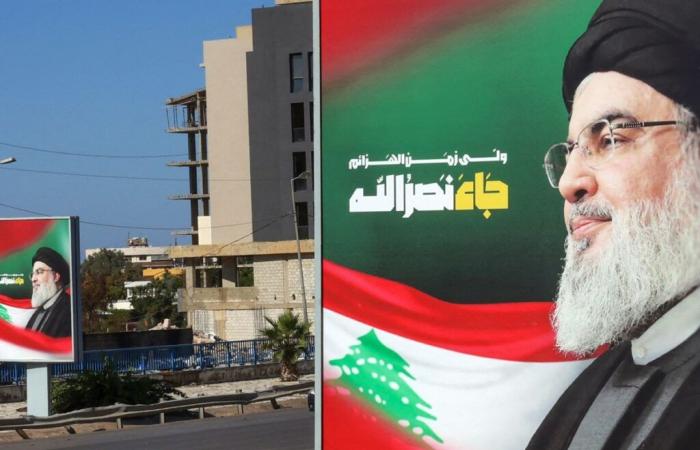Neither Hamas nor Hezbollah fit this description. When Israel killed Abbas Musawi, the leader of Hezbollah, in 1992, the group did not die with him. On the contrary, his successor, Hassan Nasrallah, proved to be a much more capable leader. Similarly, Hamas survived the assassination of Ahmed Yassin, its founder, in 2004. “If Hamas were vulnerable to a strategy of decapitation, it would likely have been defeated by now,” Ms. Cronin wrote in Foreign Affairs after Israel killed Hamas leader Yahya Sinwar earlier this month.
The problem with this historical argument is that the past year has few historical parallels. When Israel killed Musawi in 1992, it was a unique event: another 16 years would pass before it managed to assassinate someone else of his stature.
The current campaign against Hezbollah is quite different. When Israel killed Mr. Nasrallah on September 27, it had already eliminated most of the group's military commanders. He has since killed Hashem Safieddine, Mr. Nasrallah's heir apparent, and possibly Wafiq Safa, a feared henchman who used threats and violence to bring Lebanese officials to his knees. Even the most resilient group would struggle after losing the first four or five levels of their organizational chart.
The same goes for Hamas, which over the past year has lost two leaders, its military chief and his deputy, as well as dozens of lower-ranking commanders. Thousands of cadres from both groups have also been killed or injured in Israeli attacks.
Added to this is the unique stature of Mr. Nasrallah and Mr. Sinwar. The former was the most powerful man in Iran's “axis of resistance” and a trusted confidant of the supreme leader. The second, unlike his predecessors, dominated all the disparate branches of Hamas: he controlled both the military and political wings and subjected the leaders of the diaspora to his will. Neither will be easily replaced, and their successors may not enjoy the same support from Iran.
A second argument is structural. Before October 7, Hamas was the de facto government of Gaza, with tens of thousands of officials in its service. Hezbollah is a state within a state: it distributes patronage jobs, operates a chain of discount food stores and runs a bank. In other words, these are not just activist groups, but deeply rooted political and economic entities.
Hamas no longer has a monopoly on violence
Yet some of these roots have been uprooted over the past year by Israel's actions. For Hamas to become the ruler of Gaza again, it will need money to pay its fighters and bureaucrats. However, Gaza's economy is in ruins: merchants who once paid Hamas $360 million a year in taxes have been killed or lost their businesses. Hamas no longer has a monopoly on violence and extortion, as increasingly powerful gangs steal aid shipments and run protection rackets.
In Lebanon's clientelist system, a party is only as strong as the benefits it provides. Long the richest party in Lebanon, Hezbollah is today under pressure. Some fighters complain that their salaries are late; displaced civilians complain of not receiving assistance with housing and other needs.
The last argument is philosophical. “Hamas is an idea, and you don’t kill an idea,” Josep Borrell, the European Union’s foreign policy chief, said in February. The head of the Arab League said the same thing about Hezbollah earlier this month. This is a terse statement. It is also incorrect.
Difficult to eliminate institutions
Analysts made similar claims about the Islamic State (IS) a decade ago, when the jihadist group declared a caliphate and seized swaths of territory in Syria and Iraq . The caliphate lasted less than four years: it collapsed in the face of an international coalition that killed tens of thousands of IS fighters during a ferocious campaign.
Let's also take the example of the Muslim Brotherhood, the oldest Islamist movement in the world. It flourished for almost a century in its home country of Egypt, even though it was officially banned. But in 2013, Abdel-Fattah al-Sisi overthrew Egypt's elected president, a member of the Brotherhood, in a coup. He massacred hundreds of the group's supporters and imprisoned tens of thousands more. The group's assets were seized, its schools and charities closed.
To be fair, neither group was eliminated. IS persists as a rural insurgency in Syria and Iraq; the Brotherhood, as factions of exiles feuding in London and Istanbul. But it will be years before either can wield power again. It may not be possible to kill such groups, but if one is prepared to apply a very high level of violence and repression, they can be marginalized for a long time.
Hamas and Hezbollah are institutions, not ideas. It is not certain that Hamas will be the main Palestinian militant group or that Hezbollah will be the main representative of Lebanese Shiites. The question is what might emerge to replace them. Many in Lebanon fear that a weakening of Hezbollah could lead to a struggle within the Shiite community. And even if it is not under the banner of Hamas, as long as Israel denies the Palestinians a state, there will be Palestinians ready to fight Israel.






